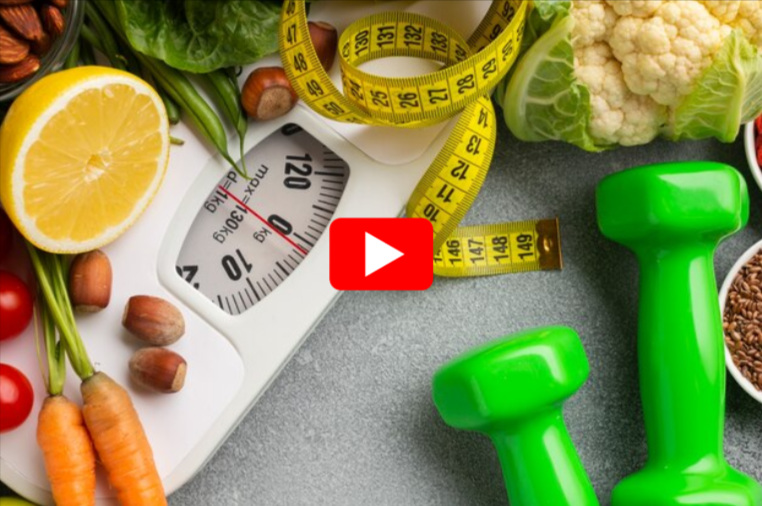Lose Weight Without Extreme Dieting: Safe & Lasting Results
Contents
- 1 🌟How to Lose Weight Without Extreme Dieting💪| Easy Daily Habits
- 2 Why Extreme Dieting Fails
- 3 How to Lose Weight Without Extreme Dieting: 15 Sustainable Strategies
- 4 Real Tips to Lose Weight Without Starving🧘♀️💧| No More Fad Diets!
- 5 The Mindset Shift: Ditch Diet Culture
- 6 Sample Day of Eating for Sustainable Weight Loss
- 7 💥Sustainable Weight Loss Without Dieting | Transform Your Life!
- 8 Common Myths About Losing Weight Without Dieting
- 9 Final Thoughts: A Journey, Not a Sprint
In today’s fast-paced world, many people are looking for a quick fix to weight loss—often turning to extreme dieting methods like juice cleanses, very low-calorie diets, or fad regimens that eliminate entire food groups.
While these might yield short-term results, they rarely lead to sustainable weight management and can have adverse effects on your overall health.
🌟How to Lose Weight Without Extreme Dieting💪| Easy Daily Habits
If you’re tired of yo-yo dieting, feeling deprived, or constantly worrying about every bite you take, you’re not alone. The good news? You can lose weight without extreme dieting.
Discover how to lose weight naturally without extreme dieting. Learn simple, sustainable habits for lasting results, better health, and improved well-being.
Sustainable weight loss isn’t about starvation or eliminating carbs completely—it’s about building habits that support long-term well-being.
In this comprehensive guide, we’ll walk you through realistic, research-supported strategies to lose weight without extreme dieting, empowering you to feel healthier, more energized, and in control of your body.
Why Extreme Dieting Fails
Before diving into sustainable methods, it’s important to understand why extreme diets often backfire.
1. They’re Not Sustainable
Extreme diets might show quick results, but they’re not designed for the long haul. They often lead to nutrient deficiencies, fatigue, irritability, and even hormonal imbalances. Most people regain the lost weight—and sometimes more—once they resume normal eating.
2. They Slow Your Metabolism
When you drastically reduce calorie intake, your body goes into “survival mode,” slowing your metabolism to conserve energy. Over time, this makes it harder to lose weight and easier to gain it back.
3. They Promote Disordered Eating
Many extreme diets contribute to unhealthy relationships with food, including binge eating, emotional eating, or orthorexia (an obsession with “clean” eating). This can lead to mental health struggles that compound the physical issues.
How to Lose Weight Without Extreme Dieting: 15 Sustainable Strategies
Now that we’ve outlined the pitfalls of extreme dieting, let’s look at science-backed, realistic strategies for healthy, long-term weight loss.
1. Focus on Whole, Nutrient-Dense Foods
Instead of obsessing over calories, focus on quality. Whole foods—like fruits, vegetables, whole grains, legumes, lean proteins, nuts, and seeds—are naturally lower in calories and higher in nutrients.
Tip: Fill at least half your plate with non-starchy vegetables (e.g., spinach, broccoli, bell peppers) to stay full without overeating.
2. Eat Mindfully
Mindful eating is about being present during meals, recognizing hunger and fullness cues, and savoring each bite. Research shows that mindful eating can help reduce binge eating and emotional eating, leading to natural weight loss.
Try This: Turn off screens, chew slowly, and pause halfway through your meal to check your hunger level.
3. Incorporate More Movement
You don’t have to spend hours in the gym. Walking, stretching, dancing, or gardening all count as physical activity.
Goal: Aim for at least 150 minutes of moderate activity per week—like brisk walking or biking.
4. Prioritize Sleep
Poor sleep is directly linked to weight gain. When you don’t get enough sleep, your body produces more ghrelin (the hunger hormone) and less leptin (the fullness hormone), causing increased appetite and cravings.
Pro Tip: Establish a regular sleep schedule, avoid screens before bed, and create a relaxing nighttime routine.
5. Hydrate Before You Eat
Often, we confuse thirst for hunger. Drinking water before meals can help curb appetite and prevent overeating.
Habit Hack: Start your day with a glass of water and drink a full glass 15–30 minutes before each meal.
6. Don’t Skip Meals
Skipping meals may lead to overeating later in the day. It also disrupts blood sugar levels and can cause fatigue, irritability, and cravings.
Instead: Aim for regular meals and snacks every 3–5 hours to keep your energy stable.
7. Balance Your Plate
A balanced plate includes:
- Protein: Keeps you full and supports muscle.
- Fiber: Slows digestion and stabilizes blood sugar.
- Healthy fats: Satisfy hunger and support brain health.
- Complex carbs: Fuel your day and support metabolism.
Example: Grilled salmon + quinoa + sautéed spinach + avocado slices.
8. Keep Healthy Foods Visible
We tend to eat what’s easy and accessible. Stock your kitchen and workspace with healthy snacks like fresh fruit, nuts, and hummus with veggies.
Bonus Tip: Use clear containers for healthy items and store treats out of sight or in opaque containers.
9. Build Muscle with Strength Training
Muscle burns more calories than fat—even at rest. Incorporating strength training 2–3 times a week can boost your metabolism and support a leaner physique.
You don’t need a gym—bodyweight exercises like push-ups, squats, and planks work wonders.
Real Tips to Lose Weight Without Starving🧘♀️💧| No More Fad Diets!
10. Set Realistic Goals
Sustainable weight loss is typically 1–2 pounds per week. Set SMART goals (Specific, Measurable, Achievable, Relevant, Time-bound) and celebrate small wins to stay motivated.
Example: “I’ll walk 30 minutes five days this week” is more helpful than “I want to lose 10 pounds this month.”
11. Reduce Ultra-Processed Foods—Gradually
You don’t need to give up cookies or pizza forever. But minimizing ultra-processed foods (like chips, sugary drinks, and fast food) can make a huge impact on your weight and health.
Strategy: Try a “crowding out” approach—add more whole foods so there’s less room for processed ones.
12. Manage Stress Proactively
Chronic stress elevates cortisol, which can promote belly fat and emotional eating. Managing stress is essential for weight management.
Suggestions: Meditation, journaling, deep breathing, nature walks, or engaging hobbies.
13. Stay Consistent—Not Perfect
Perfection isn’t the goal. A sustainable approach means being consistent most of the time, not 100% all the time.
Remember: One indulgent meal or skipped workout doesn’t derail your progress. Get back on track at the next opportunity.
13. Track Progress Beyond the Scale
Weight is just one measure of health. Track:
- Energy levels
- Sleep Quality
- Mood
- Clothing fit
- Physical strength
Non-scale victories keep you motivated even when the scale stalls.
15. Get Support
Accountability is powerful. Whether it’s a health coach, friend, support group, or online community, having someone in your corner makes a big difference.
The Mindset Shift: Ditch Diet Culture
To lose weight without extreme dieting, you must shift your mindset:
- From restriction to nourishment
- From punishing workouts to joyful movement
- From body shame to self-respect
Focus on feeling good—not just looking good. When you prioritize overall wellness, the weight often follows naturally.
Sample Day of Eating for Sustainable Weight Loss
Here’s what a day of balanced, enjoyable eating might look like:
- Breakfast: Greek yogurt with berries, chia seeds, and a drizzle of honey
- Snack: Apple slices with almond butter
- Lunch: Grilled chicken salad with olive oil dressing and quinoa
- Snack: Hummus with cucumber and carrots
- Dinner: Stir-fried tofu with brown rice and broccoli
- Evening: Herbal tea and a square of dark chocolate (optional)
Notice there’s no counting, no starvation, and no weird rules—just nourishing, delicious food.
💥Sustainable Weight Loss Without Dieting | Transform Your Life!
Common Myths About Losing Weight Without Dieting
Myth 1: You Have to Cut Carbs Completely
Not true. Whole-food carbs like oats, sweet potatoes, and lentils support energy, metabolism, and gut health.
Myth 2: You Must Be in a Constant Calorie Deficit
Chronic restriction can harm your body. Occasional maintenance days can help balance hormones and keep your metabolism strong.
Myth 3: You Need Supplements or Detoxes
While some supplements may support weight loss, they aren’t magic. And your body detoxes itself just fine—with a liver and kidneys.
Final Thoughts: A Journey, Not a Sprint
Losing weight without extreme dieting is absolutely possible—and more effective in the long run. It’s about building habits that become part of your life, not rules that leave you feeling trapped.
Remember:
- Progress, not perfection
- Patience, not panic
- Nourishment, not punishment
If you want lasting weight loss, prioritize balance, consistency, and self-care. When you stop chasing quick fixes, you’ll find the results are far more rewarding.
.




